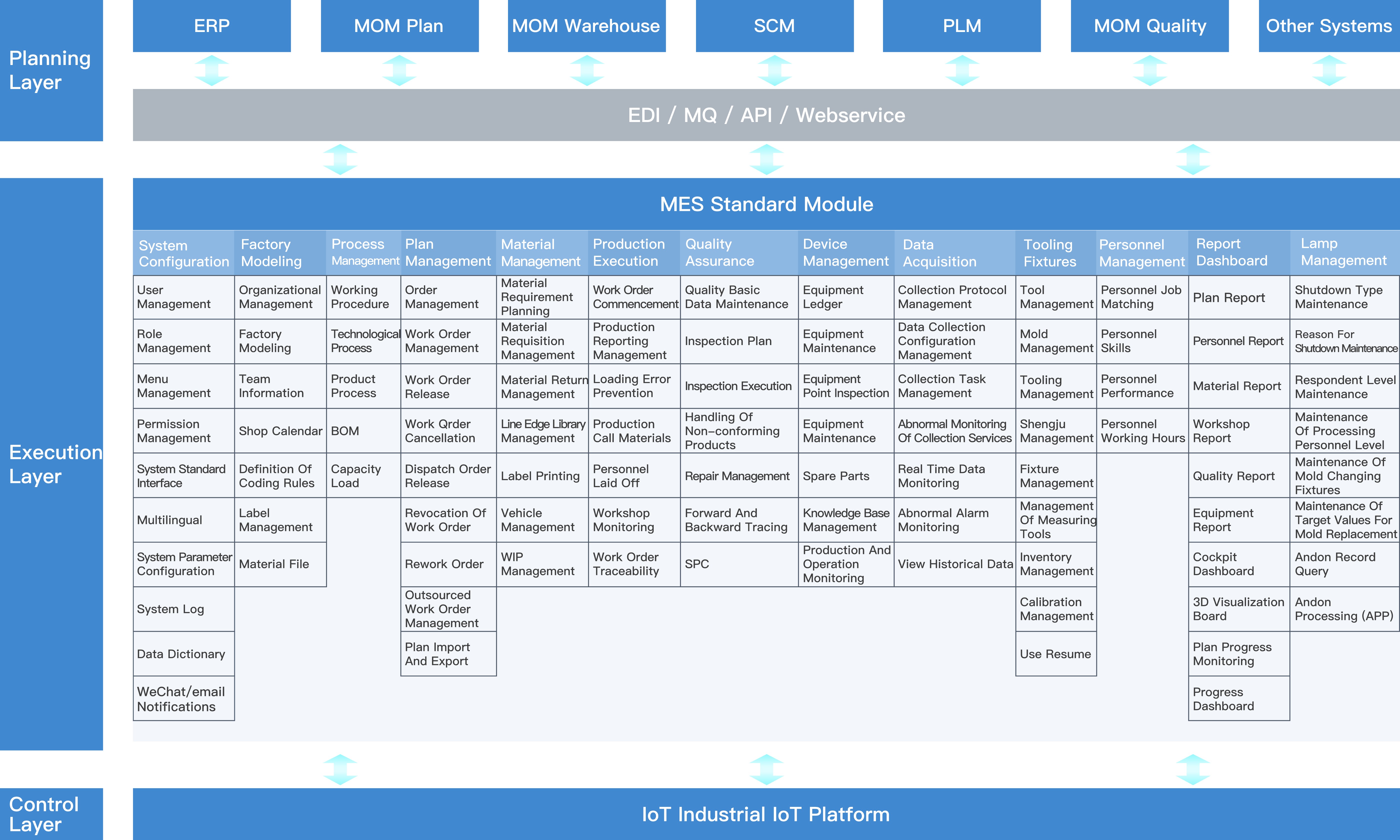

Adaptable across platform;
Supports mainstream browsers for web, app, H5, and mini programs;
Support dozens of mainstream databases;
Multiple languages available.

Componentization and modularization;
Highly scalable system;
Function migration and high reusability of configuration files;
Adaptable to multiple third-party system integration protocols.

Support server cluster deployment;
Support hardware redundancy;
Service stateless design;
High concurrency and load balancing support;
Support cloud native.

Hierarchical user permission design;
Support system single log in, unified authentication and authorization;
Support the encryption, storage, and transmission of national security SM series passwords;
Complete system logs;
Real time system monitoring;
Support network isolation and achieve security management.

Wizard based configuration system;
Rich and diverse data visualization;
3D Factory Model.

Copyright © KORISDA . All Rights Reserved